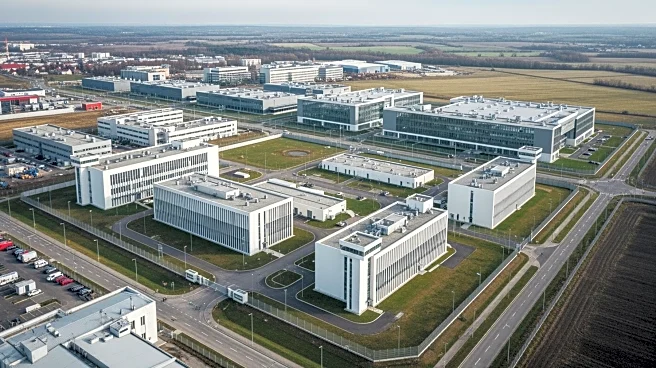Rapid Read • 9 min read
City officials in Boston and San Francisco are actively pursuing the establishment of satellite campuses for Historically Black Colleges and Universities (HBCUs) in their regions. This initiative aims to provide greater access to higher education for Black students and to diversify local economies. The movement comes in response to the Trump administration's actions against diversity, equity, and inclusion (DEI) programs, which have included proposed budget cuts to HBCUs and the cancellation of grants. Despite these challenges, President Trump has also signed an executive order supporting HBCUs. The expansion of HBCUs is seen as a way to offer Black students educational environments where they feel included and celebrated, especially as DEI initiatives face increasing scrutiny.
AD
The expansion of HBCUs into new regions is significant as it addresses the educational and economic disparities faced by Black communities. By establishing satellite campuses, cities like Boston and San Francisco aim to create more inclusive educational opportunities and strengthen the pipeline for Black students to enter higher education. This move could also enhance local economies by attracting a diverse student body and fostering a more inclusive workforce. The initiative is particularly crucial as DEI programs are under attack, and HBCUs have historically played a vital role in producing Black professionals in various fields. The expansion could help maintain and grow this legacy, providing a counterbalance to the challenges posed by recent political actions.
Boston is set to host a community listening session on August 26 to gather public input on the proposed HBCU satellite campus. The feedback will inform the city's plans and potential partnerships with HBCUs. Meanwhile, Huston-Tillotson University in Texas is working on establishing an off-campus instructional site in San Diego, with plans to launch a business administration program by spring 2026. These efforts require multiple approvals, including accreditation, and are part of a broader strategy to increase access to HBCU education across the country. The success of these initiatives could lead to further expansion and collaboration between HBCUs and cities nationwide.
The expansion of HBCUs into new areas could have long-term cultural and educational impacts. It may challenge traditional perceptions of HBCUs as being primarily Southern institutions and highlight their role as national models of educational excellence. Additionally, the move could inspire predominantly White institutions to reevaluate their DEI strategies and foster more inclusive environments. However, there are concerns about maintaining the unique cultural and historical aspects of HBCUs in new locations, which will require careful planning and community engagement.
AD
More Stories You Might Enjoy











